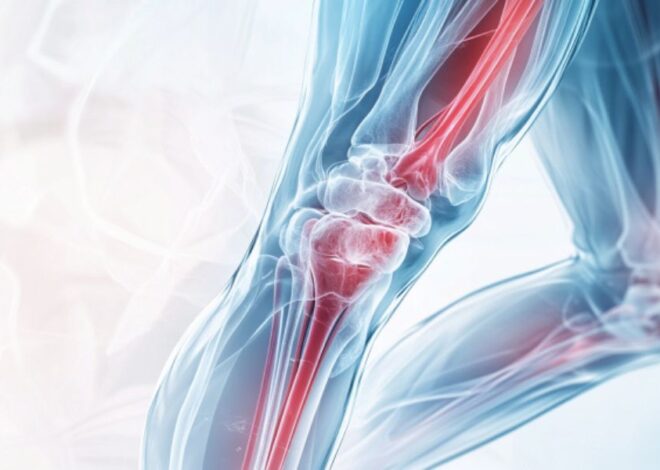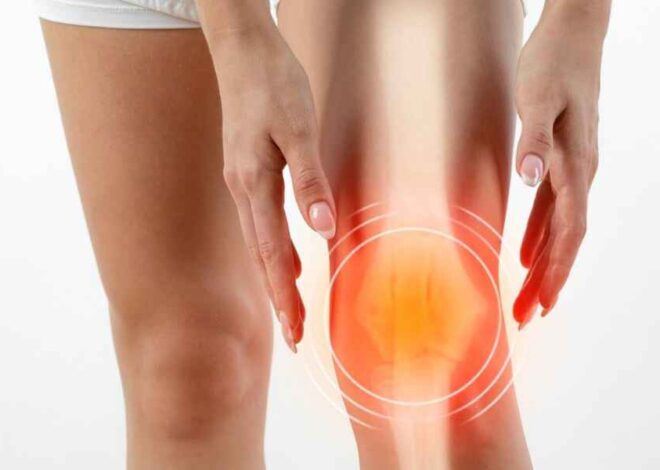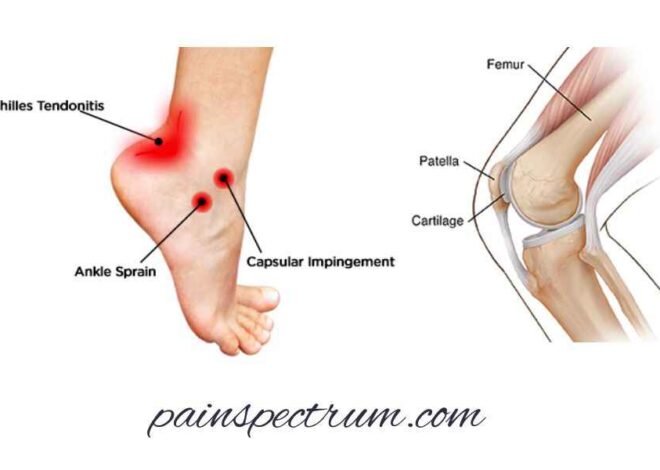
Knee Pain Postpartum: Causes, 7 Recovery Tips, and Solutions for New Moms
Last updated on January 28th, 2026 at 10:12 pm
Welcoming a new life into the world is undoubtedly a beautiful experience, but some unexpected challenges can arise after childbirth, such as knee pain postpartum. Many women experience joint pain, especially in the knees, following delivery. This guide will walk you through why knee pain postpartum happens, its causes, and how you can manage it effectively.
5 Knee Pain Location Chart
Table of Contents
What Is Postpartum Knee Pain?
Postpartum knee pain refers to the discomfort, stiffness, or swelling in the knees experienced after giving birth. For many new moms, knee pain postpartum can interfere with daily activities, making it harder to care for their newborn. But why does this happen?

Why Does Knee Pain Occur After Pregnancy?
Knee pain postpartum can occur for several reasons, including hormonal shifts, changes in posture, and the added weight carried during pregnancy. These factors place extra strain on the joints, leading to discomfort.
Common Symptoms of Knee Pain After Delivery
Typical symptoms of postpartum knee pain include:
- Stiffness, especially in the morning or after sitting for long periods.
- Swelling around the knees.
- Difficulty bending or straightening the knee.
- A dull ache or sharp pain during movement.
Nerve Pain After Knee Replacement
Causes of Knee Pain After Pregnancy
Understanding the underlying causes of knee pain postpartum can help you address it effectively. Here are the most common reasons why new moms experience knee pain:
1. Hormonal Changes and Their Impact on Joints
During pregnancy, your body produces a hormone called relaxin, which loosens the joints and ligaments to prepare for childbirth. However, this hormone can also make your knees more vulnerable, increasing the risk of knee pain postpartum.
2. Weight Gain and Its Strain on the Knees
The weight gained during pregnancy puts extra pressure on your knees, and this strain can persist even after childbirth, leading to pain and discomfort.
3. Posture Changes During and After Pregnancy
Pregnancy changes your center of gravity, which can affect your posture. Poor posture, both during pregnancy and while caring for your newborn, can contribute to knee pain postpartum.
4. Physical Demands of Caring for a Newborn
Lifting your baby, carrying car seats, and bending over frequently can put a lot of strain on your knees, especially if your joints are already weakened, increasing the risk of knee pain postpartum.
5. Fluid Retention and Swelling in the Knees
Many women experience swelling due to fluid retention during and after pregnancy. This extra fluid can accumulate in the knees, leading to pain and stiffness, which may contribute to knee pain postpartum.
Managing Knee Pain Postpartum: 7 Essential Tips for Recovery
The good news is that postpartum knee pain is manageable. Here are some effective ways to relieve pain and support recovery:
1. Gentle Exercises to Strengthen Knee Muscles
Engaging in low-impact exercises such as walking, swimming, or light stretching can help strengthen the muscles around your knees, providing better support and reducing knee pain postpartum.

2. Proper Posture and Ergonomics for Moms
Pay attention to your posture while breastfeeding, lifting, or carrying your baby. Use a nursing pillow and lift objects using your legs, not your back, to reduce strain on your knees and prevent knee pain postpartum.
3. Ice and Heat Therapy: Reducing Pain and Swelling
Ice packs can help reduce inflammation, while heat therapy can relax the muscles and alleviate discomfort. Alternate between ice and heat for the best results.
4. Choosing the Right Footwear for Better Support
Supportive shoes with good arch support are essential for new moms, especially when you’re on your feet all day. Avoid high heels or unsupportive flats that can worsen knee pain.
5. Rest and Recovery: Importance of Taking Breaks
Your body needs time to heal after childbirth. Make sure to rest and avoid overexerting yourself. Take breaks whenever possible, especially if your knees are feeling sore.
6. Physical Therapy: How It Helps with Postpartum Knee Pain
If your knee pain postpartum persists, consider visiting a physical therapist. They can provide you with targeted exercises and treatment plans to help alleviate pain and improve joint function.
7. Over-the-Counter Medications: What’s Safe While Breastfeeding?
Non-steroidal anti-inflammatory drugs (NSAIDs) like ibuprofen can help reduce knee pain and inflammation. However, consult your doctor before taking any medication, especially if you’re breastfeeding.
How Long Does Postpartum Knee Pain Last?
The duration of postpartum knee pain varies from person to person. For most women, it resolves within a few months after delivery. However, if the pain persists for more than six months, it’s a good idea to consult a healthcare professional to rule out any underlying issues.
Typical Recovery Timeline for Knee Pain After Delivery
Mild postpartum knee pain may subside within a few weeks as your body adjusts. More severe cases may take several months, especially if compounded by other factors like arthritis or muscle weakness.
When to Seek Medical Advice for Persistent Pain
If your knee pain doesn’t improve with home care or worsens over time, it’s essential to consult a doctor. Prolonged pain could be a sign of an underlying condition, such as postpartum arthritis or an injury.
Is Knee Pain Common After Pregnancy?
Yes, knee pain postpartum is common among women due to the physical and hormonal changes that occur during and after pregnancy. It’s not uncommon to see discussions about knee pain on platforms like Reddit and Mumsnet, where mothers share their experiences and advice.
Reddit and Mumsnet Users’ Experiences and Advice
Many new moms on these forums report knee pain during the postpartum period, with some suggesting remedies like wearing supportive shoes, using knee braces, and practicing yoga to manage discomfort.
NHS Guidelines on Postpartum Joint Pain
The NHS recommends gentle exercises, maintaining a healthy weight, and using hot and cold treatments to manage postpartum joint pain, including knee discomfort.
Postpartum Joint Pain: Areas Most Affected
Knee pain is just one of several types of joint pain new moms may experience. Here are other common areas that may be affected:
Knee and Hip Pain: What You Should Know
Hip pain often accompanies knee pain postpartum due to the extra strain on your pelvis during pregnancy. This can result in discomfort in both areas after delivery.
Postpartum Arthritis: Is It a Risk After Pregnancy?
Although rare, some women develop postpartum arthritis, which can affect various joints, including the knees. If you experience persistent pain, swelling, or stiffness, consult your doctor.
Postpartum Finger Joint Pain: A Common Symptom
Some women experience joint pain in their hands and fingers after giving birth, often due to the same hormonal changes that affect the knees.
Breastfeeding and Knee Pain: Is There a Link?
There’s a possible connection between breastfeeding and joint pain, including knee pain postpartum, due to hormonal fluctuations. During breastfeeding, the body continues to produce relaxin, which can keep joints looser than usual, contributing to knee pain postpartum.
Hormonal Fluctuations During Breastfeeding and Joint Pain
The continued presence of relaxin during breastfeeding can cause lingering joint instability, leading to knee discomfort. This should improve as hormone levels return to normal.
Nutritional Needs and Supplements for Postpartum Joint Health
A healthy, balanced diet rich in calcium, vitamin D, and omega-3 fatty acids can support joint health. Consider discussing supplements with your doctor to help manage postpartum joint pain.
Preventing Knee and Joint Pain Postpartum
Prevention is key to reducing postpartum knee pain. Here’s how you can take care of your joints before and after pregnancy:
Staying Active During Pregnancy to Reduce Postpartum Pain
Regular exercise during pregnancy can help strengthen your muscles and joints, reducing the likelihood of postpartum pain. Prenatal yoga and swimming are excellent options.
Importance of a Balanced Diet and Hydration
Eating a nutritious diet and staying hydrated during and after pregnancy helps support overall joint health, reducing inflammation and discomfort.
Maintaining a Healthy Weight Postpartum
Gaining too much weight during pregnancy can put extra strain on your knees. After delivery, focus on gradual weight loss to ease pressure on your joints.
Home Remedies and Treatment for Postpartum Joint Pain
Home remedies can be very effective for managing postpartum knee pain. Here are a few options to try:
Natural Remedies for Knee Pain Relief
Applying a warm compress, using essential oils, and practicing gentle stretching can provide relief from postpartum knee pain.
Supplements and Nutrients to Support Joint Health
Omega-3 fatty acids, glucosamine, and chondroitin supplements may help improve joint health and reduce knee pain.
Postpartum Joint Pain: Simple Home Exercises
Simple exercises like leg raises, wall squats, and stretches can help strengthen your knees and alleviate pain.
When to See a Doctor for Postpartum Knee Pain
It’s crucial to know when your knee pain requires medical attention. If you notice the following, seek professional help:
Warning Signs That Your Knee Pain Needs Medical Attention
- Severe swelling
- Difficulty walking or bearing weight
- Persistent pain that doesn’t improve
- Signs of infection, such as redness or warmth
Can Postpartum Knee Pain Lead to Chronic Conditions?
In rare cases, untreated postpartum knee pain can lead to chronic issues, such as arthritis. Seeking early treatment can prevent long-term damage.
FAQs About Knee Pain Postpartum
Why do my knees hurt after pregnancy?
Postpartum knee pain can occur due to hormonal changes, weight gain, altered posture, fluid retention, weak muscles, and increased physical activity. These factors strain the knees, causing discomfort. Consulting a healthcare professional can help manage and alleviate the pain.
Is postpartum knee pain normal?
Yes, postpartum knee pain is common and often normal. It can result from hormonal changes, weight gain, muscle weakness, and altered posture during pregnancy. The body undergoes various changes that can strain the knees. However, if pain persists or worsens, it’s advisable to consult a healthcare professional for proper evaluation and treatment to ensure recovery.
How can I relieve knee pain after giving birth?
To relieve knee pain after giving birth, try low-impact exercises like walking or swimming to strengthen knee muscles. Maintain proper posture, use supportive footwear, and apply ice or heat to reduce swelling. If pain persists, consider physical therapy or consult a healthcare provider for personalized treatment.
Can breastfeeding cause joint pain?
Yes, breastfeeding can contribute to joint pain due to hormonal changes, particularly increased relaxin levels, which affect ligament flexibility. Holding and positioning the baby during breastfeeding may also strain joints, leading to discomfort, especially in the wrists, shoulders, and knees.
When should I see a doctor for postpartum knee pain?
You should see a doctor for postpartum knee pain if the pain persists beyond a few weeks, worsens over time, affects your ability to perform daily activities, or is accompanied by swelling, redness, or warmth around the joint. A healthcare professional can provide a proper diagnosis and treatment plan.
Conclusion
Postpartum knee pain is a common issue for many new mothers, but with the right strategies and care, it can be managed effectively. By understanding the causes, incorporating gentle exercises, and paying attention to your posture, you can alleviate pain and regain your mobility. If knee pain persists, don’t hesitate to seek medical advice for a tailored treatment plan.
Reference


